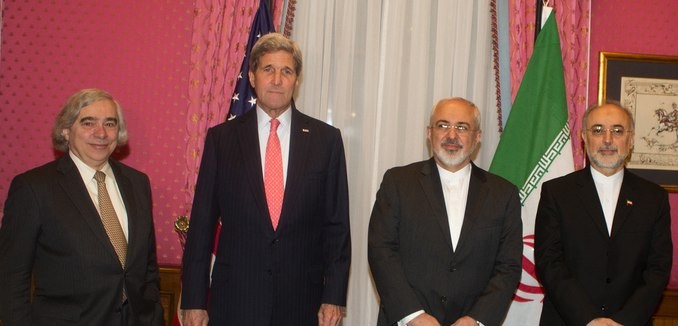The framework announced by Iran and the global P5+1 powers at Lausanne last week contains significant weaknesses that leading scientists warned over the weekend will be ignored “at the peril of regional security and peace,” marking the latest in what has become a string of warnings from top nuclear experts and diplomats that the agreement taking form risks dragging the United States into Middle East wars involving nuclear-armed disputants.
The Institute for Science and International Security (ISIS) – a top think tank that has been engaged by the Obama administration throughout negotiations with Iran and has even seen some of its recommendations incorporated into current proposals – published a comprehensive 13-page report assessing that the current U.S. stance on forcing Iran to come clean on its past nuclear work would badly undermine the deal and destabilize the regime. The Wall Street Journal reported on the eve of talks in Lausanne, Switzerland that Washington was prepared to permit Iran to put off disclosing the full extent of its atomic research until after sanctions relief had been granted. The warnings about the potential for the deal to spark war echo those recently published by former Secretaries of State Henry Kissinger and George Shultz – the two wrote that “[r]ather than enabling American disengagement from the Middle East, the nuclear framework is more likely to necessitate deepening involvement there—on complex new terms” – as well as a blunt assessment from Israeli Defense Minister Moshe Ya’alon in The Washington Post. Ya’alon asserted that “the terms of the framework… make war more likely.”
Another section of the institute’s report, which involves the White House’s overarching claim of having achieved a one-year breakout time, criticized the administration for flatly failing to take into account Iran’s current stockpile of near 20% low enriched uranium. Other experts have described uranium enriched to that level as 90% of the effort needed to reach weapons-grade uranium, and the BBC had already noted last summer that “[a]t 20%, enriched uranium can be converted quickly to arm a nuclear weapon.” In the report, the institute’s experts criticized the administration for assuming that transforming that portion of the stockpile into reactor fuel elements made it irrelevant to a potential Iranian drive for a nuclear weapon, tersely noting instead that “recovery of near 20 percent LEU from fresh fuel can be straightforward and the U.S. evaluation requires greater scrutiny.” The report concluded that under some scenarios the framework, if implemented as reported, would allow Iran to have a breakout time short of the window that the Obama administration has described as necessary to detect and respond to Iranian cheating.
[Photo: United States Mission Geneva / Flickr ]




